 |
Spiny Lizard While the students were canoeing, Scott Maretka, the biology teacher at Independence High School, and I tried our luck at catching Eastern Fence Lizards (Sceloporus undulatus). I nabbed this male, which had a blue belly. Click here to see another photo 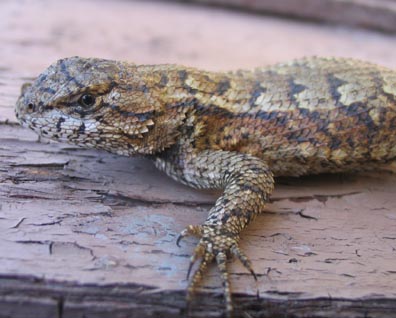
| Female Fence Mr. Maretka caught this gravid female, which was rather colorful (for a fence lizard). When pursued, a fence lizard will stay on the opposite side of the tree from its predator, just like a squirrel. Click here to see another photo 
Gentle Green
| After we were rejoined by the students, I caught this Rough Green Snake (Opheodrys aestivus). These snakes are graceful, mild-tempered tree-dwellers. Click here to see another photo 
No Greenhorn
| John Butler keeps snakes and lizards at home and was glad to have a chance to hold a wild serpent. 
Jenna Gets Green
| Jenna Wagner is one of my former art students. Now she's learning a little herpetology from me. Some people have all the luck. 
Longtail
| We were unsuccessful in finding a cave salamander, but we did find one of its closest relatives, the Longtailed Salamander (Eurycea longicauda), which has a slender tail that is much longer than its body. 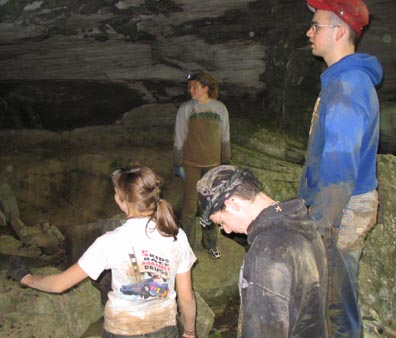
Dirty Laundry
| Cave exploring is a dirty job, but somebody's got to do it. 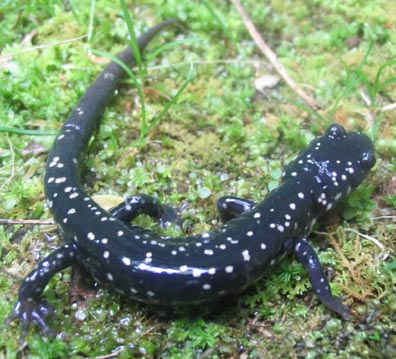
Sticky Situation
| The Slimy Salamander (Plethodon glutinosus) produces a glue-like secretion from its skin as a defense against predators. They inhabit moist, hilly forests. 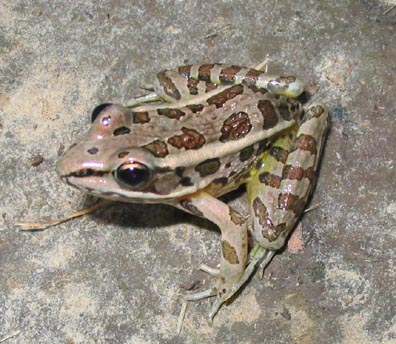
Poison Potion
| Rather than secreting glue, the Pickerel Frog (Rana palustris) produces poison, which makes it unappetizing to some predators. 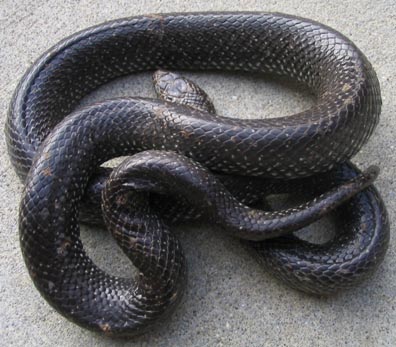
Royal Reptile
| Although it was pretty badly beaten up, I was excited to find this Black Kingsnake (Lampropeltis getula nigra). These snakes are powerful constrictors and are immune to the venom of copperheads, rattlesnakes and cottonmouths. Click here to see another photo 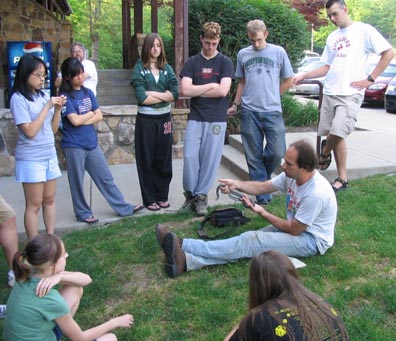
King of Snakes
| I gave a short presentation on King Snakes to the students. 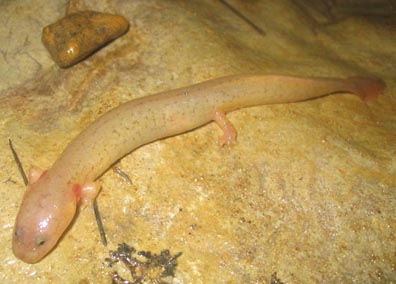
Identity Crisis
| This newly metamophised Kentucky Spring Salamander (Gyrinophilus porphyriticus duryi) was hard for us to positively identify. 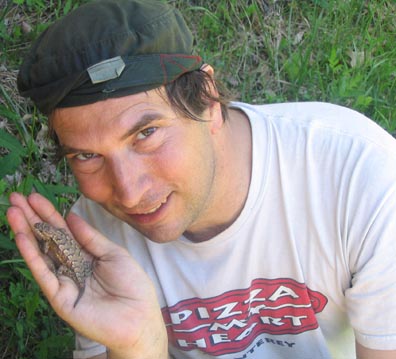
Here's Where the Story Ends
| Another Bio Society Spring Trip draws to a close. |
